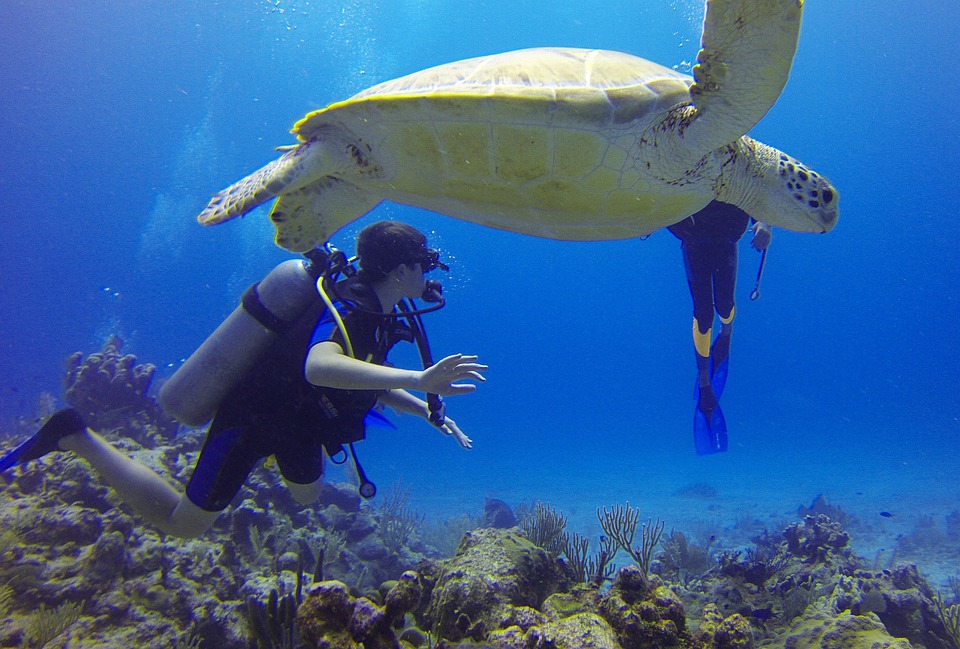Table of Contents
Introduction
Scuba diving is an exhilarating experience that allows you to explore the underwater world.
To ensure your safety and enjoyment, it’s crucial to have the right scuba gear that is of high quality and reliability.
In this article, we will guide you in making informed choices when it comes to purchasing scuba gear, helping you dive with confidence.
Choosing the Right Mask
A properly fitting mask is essential for a comfortable and enjoyable dive.
Look for a mask that provides a wide field of view and a snug fit.
Opt for tempered glass lenses for durability and consider a low volume mask for easier equalization.
Regulators: Breath Easy
Your scuba regulator is your lifeline underwater.
Invest in a regulator from a reputable manufacturer that has been thoroughly tested for reliability and performance.
Look for features like adjustable breathing resistance and balanced first and second stages for optimal breathing comfort.
BCDs: Stay Buoyant
A reliable buoyancy control device (BCD) is vital for maintaining your buoyancy at different depths and during ascents and descents.
Look for a BCD that fits well, offers ample lift capacity, and has a user-friendly inflation and deflation system.
Consider additional features like integrated weight systems and multiple D-rings for convenience.
Wetsuits and Drysuits: Dive in Comfort
The right exposure protection ensures your comfort and safety while diving.
In warmer waters, a wetsuit provides insulation against the cold and protection from marine life.
In colder waters, a drysuit seals out water entirely, keeping you warm and dry.
Look for suits that are made from durable materials and have proper sealing mechanisms.
Fins: Glide Through the Water
Properly fitting fins provide propulsion and maneuverability underwater.
Choose fins that are comfortable, lightweight, and easy to slip on and off.
Consider the style of fin that suits your diving preference, whether it’s open-heel adjustable fins or full-foot fins.
Accessories: Dive with Confidence
Several accessories can enhance your diving experience and safety.
These include dive computers for monitoring dive profiles and nitrogen levels, underwater cameras for capturing the awe-inspiring marine life, dive lights for better visibility in darker areas, and dive knives or tools for emergency situations.
Research and invest in accessories that align with your diving goals.
FAQs
Q: How do I know if scuba gear is of good quality?
A: Look for gear that is made by reputable manufacturers known for their expertise in scuba diving equipment.
Read reviews and seek recommendations from experienced divers or your dive instructor.
Q: Should I buy new or used scuba gear?
A: While used gear can be budget-friendly, it’s essential to assess its condition carefully.
Inspect for signs of wear and tear, check maintenance records, and have a professional inspect it if possible.
If unsure, it’s generally recommended to invest in new gear for peace of mind.
Q: How often should scuba gear be serviced?
A: Scuba gear should be serviced regularly according to the manufacturer’s recommendations, typically at least once a year.
Regular maintenance ensures reliability and helps identify any potential issues before they become a problem during a dive.
Q: Can I rent scuba gear instead of buying?
A: Renting scuba gear is a viable option, especially for occasional divers or those who prefer not to invest in their own equipment.
However, owning your gear allows you to familiarize yourself with it, maintain it properly, and ensure a perfect fit to enhance your comfort and safety.
Q: Are there any specific certifications or standards to look for when purchasing scuba gear?
A: Look for certifications such as the “CE” mark for European standards or the “EN” number for specific types of equipment.
Additionally, ensure that the gear meets the requirements set by diving organizations such as PADI (Professional Association of Diving Instructors).
Q: How should I store my scuba gear?
A: Proper storage is crucial to maintain the longevity of your scuba gear.
Rinse all equipment thoroughly with fresh water after each dive, allow it to dry completely, and store it in a cool, dry place away from direct sunlight and heat sources.
Keep your gear away from chemicals, sharp objects, and pests.





